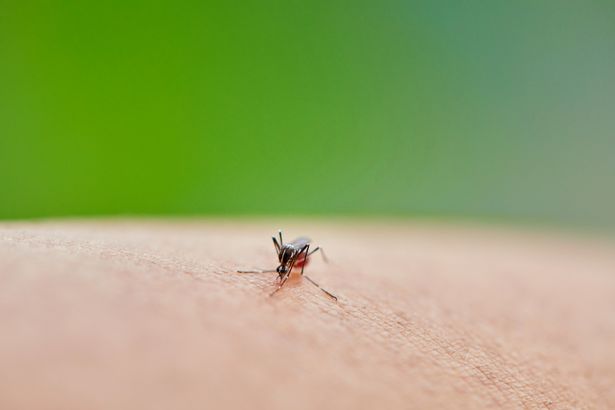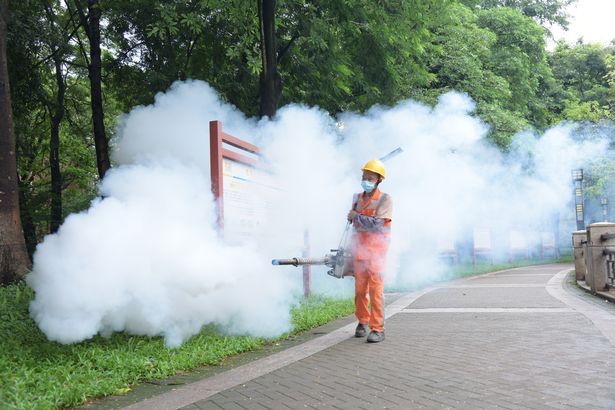Health authorities in the UK are sounding the alarm over a mosquito-borne infection after a ‘worrying’ rise in cases Chikungunya virus is caused by the bite of an infected mosquito(Image: Getty Images)
Chikungunya virus is caused by the bite of an infected mosquito(Image: Getty Images)
Health officials have urged UK travellers to take precautions against mosquito bites while on holiday amid a rise in cases of chikungunya virus.
The UK Health Security Agency (UKHSA) has reported an increase in the virus among travellers returning from abroad to England.
Chikungunya is a virus spread by mosquito bites. While serious complications are not common, the infection can be fatal in rare cases, particularly in very young or older people, or those with underlying health conditions.
Symptoms of the virus are similar to those of other tropical diseases like dengue fever and Zika. These include fever, debilitating joint pain and joint swelling, muscle pain, headache, nausea, fatigue and rash.
According to UKHSA, most people recover within two weeks, although the joint pain can last for months or even years in some cases.
Dr Philip Veal, consultant in public health at UKHSA, said: “Chikungunya can be a nasty disease and we’re seeing a worrying increase in cases among travellers returning to the UK.
“It is essential to take precautions against mosquito bites when travelling.
“Simple steps, such as using insect repellent, covering up your skin and sleeping under insecticide-treated bed nets can greatly reduce the risk.”
 Chikungunya is a mosquito-borne virus(Image: Getty Images)
Chikungunya is a mosquito-borne virus(Image: Getty Images)
The latest data from the UKHSA shows there were 73 cases of chikungunya reported between January and June 2025, compared to 27 cases for the same period last year.
The majority were linked to travel to Sri Lanka, India and Mauritius – and all cases were reported in England, primarily in London.
The UKHSA also reported the first cases of the emerging disease oropouche virus in the UK, all of which were linked to travel from Brazil.
Is the UK at risk of chikungunya?
The UKHSA said there is currently no risk of onward transmission of chikungunya, as the two species of mosquito that transmit the disease are not established in the UK.
The infection mainly occurs in Africa and Asia, specifically southern Asia, although cases have been reported in Europe and parts of North America, with local transmission reported in France and Italy.
This year there have been outbreaks in the Americas and Asia, with surges in China and the Indian Ocean islands of Reunion, Mayotte and Mauritius.
Earlier this month, a sudden outbreak of the virus swept through southern China, with more than 7,000 people infected. Foshan city in the central Guangdong Province was hit hardest and another 12 cities in the Guangdong province reported infections.
 A sanitation worker sprays insecticide to prevent the spread of Chikungunya in China(Image: VCG via Getty Images)’5.6 billion people at risk’
A sanitation worker sprays insecticide to prevent the spread of Chikungunya in China(Image: VCG via Getty Images)’5.6 billion people at risk’
The outbreak in China came just weeks after the World Health Organisation (WHO) issued an urgent call for action against chikungunya.
It warned that the viral disease is surging through islands in the Indian Ocean and moving closer to Europe, with 5.6 billion people “at risk”.
The WHO is calling for urgent action to prevent a repeat of the last major epidemic two decades ago, which infected nearly half a million people worldwide. Climate researchers believe the disease, typically found in tropical regions, could become endemic in Europe as a result of increased travel and warmer weather driven by climate change.
“We are seeing history repeating itself,” Diana Rojas Alvarez, a medical officer at the WHO, told reporters in Geneva, drawing parallels to the 2004-2005 epidemic when the virus swept across the Indian Ocean before spreading worldwide.

